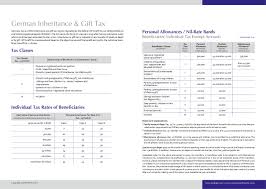Inheritance Tax in the UK: What You Need to Know

Introduction
Inheritance tax (IHT) is a significant concern for many individuals in the UK, particularly as property values continue to rise. It represents a tax on the estate of a deceased person, including their property, savings, and other possessions. Understanding how inheritance tax works, the current thresholds, and strategies for minimising its impact is crucial for effective estate planning.
Current Inheritance Tax Rates and Thresholds
As of the 2023 fiscal year, the standard inheritance tax rate is set at 40% on the value of an estate exceeding £325,000. This threshold, known as the ‘nil-rate band,’ has remained unchanged since 2009. However, there are additional allowances that can increase this threshold, such as the main residence nil-rate band (RNRB), which provides an extra allowance of up to £175,000 for individuals passing their home to direct descendants. When combined, these allowances can exempt estates valued up to £500,000 from inheritance tax.
Key Events and Changes in Legislation
Recent discussions among policymakers have highlighted the growing concerns over inheritance tax, particularly as it disproportionately affects younger generations inheriting family homes. Experts have suggested that the rise in property values could lead to more individuals facing inheritance tax, prompting calls for adjustments in policy or potential increases in the nil-rate band. However, changes have yet to be formally proposed or implemented.
Planning for Inheritance Tax
Given the implications of this tax, effective planning is essential. Strategies to reduce the inheritance tax burden include making use of annual gift allowances, which permit individuals to gift up to £3,000 per year without incurring any tax implications. Furthermore, funds placed into trust or donated to charities can also be exempt from IHT. Consulting with tax professionals and estate planners can provide tailored strategies for minimising inheritance tax liabilities.
Conclusion
Inheritance tax remains a relevant and pressing issue for many individuals in the UK, especially with the fluctuating property market. Understanding the current thresholds and available allowances is vital for effective estate planning. As conversations around tax reform continue, individuals must ensure that they are prepared and informed about strategies to protect their assets for future generations. Proper planning can significantly alleviate the burden of inheritance tax, ensuring that more of an estate’s value remains with the intended beneficiaries.









